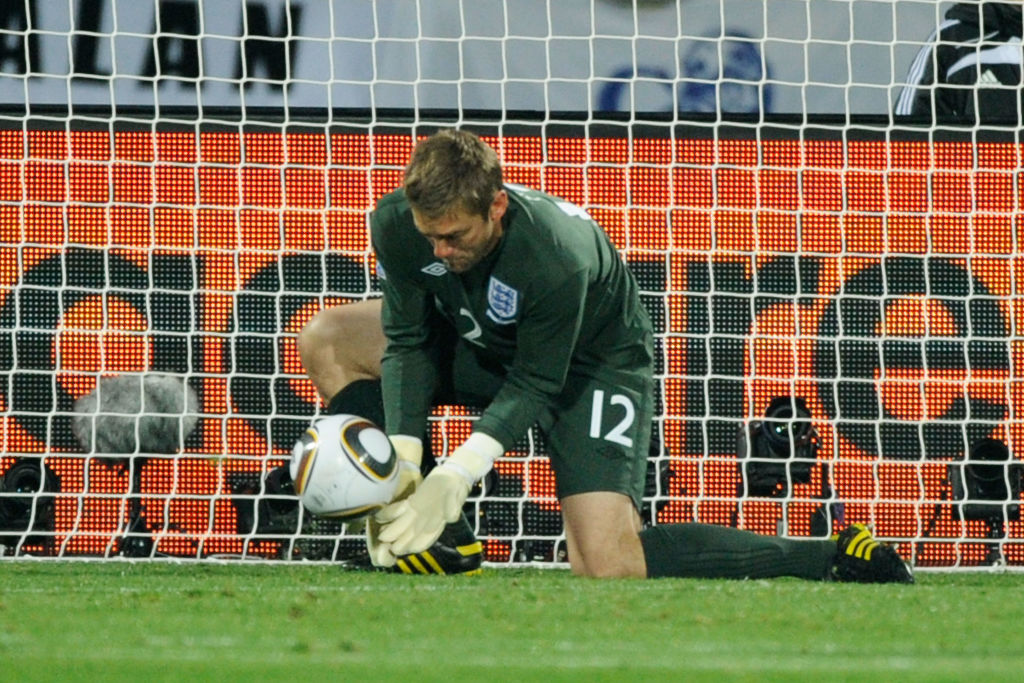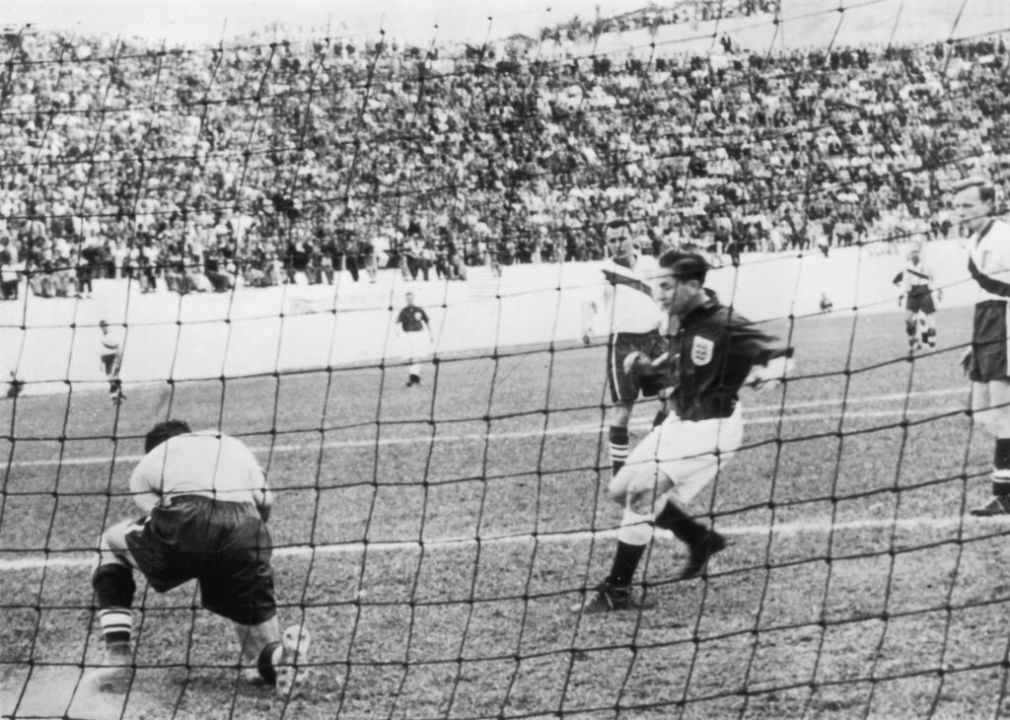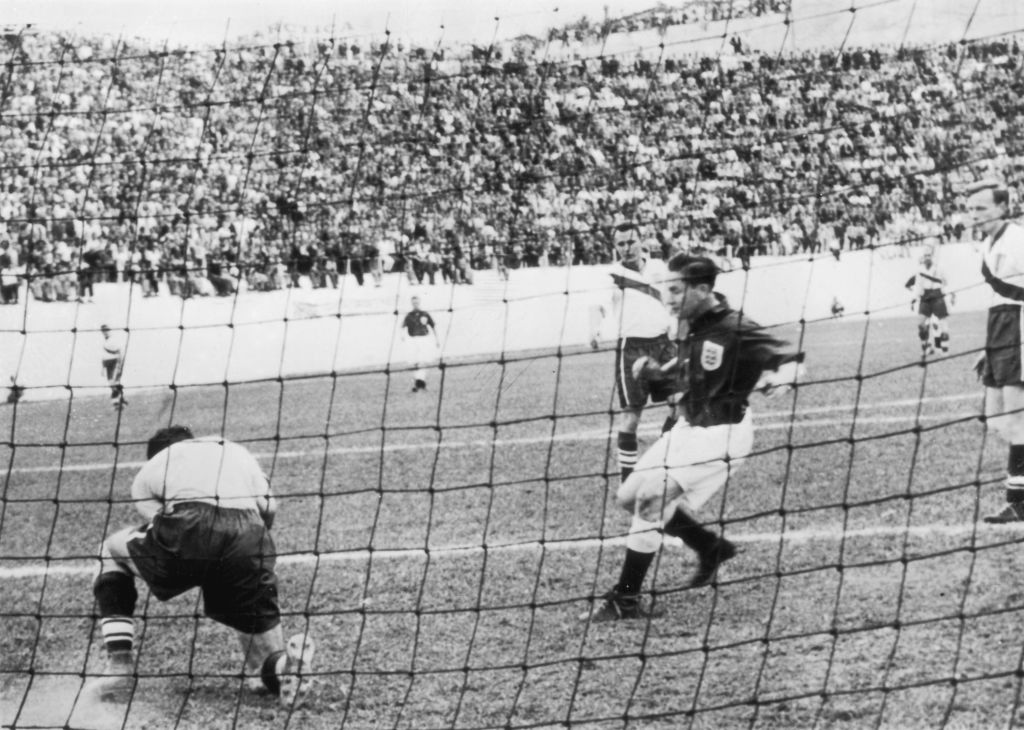When England play the USA this evening in Al Khor, Qatar, it will be the twelfth time the two sides have met. England have had the upper hand in most of the previous 11, winning eight and recording scores as comfortable as 10-0, 8-1, 6-3 and 5-0. We easily beat them 3-0 at Wembley just three years ago.
And after their respective opening games in this tournament – England thumping Iran 6-2 in their best-ever start to a World Cup, the USA nervy and stuttering by the end of a 1-1 draw with Wales – most neutrals would expect nothing other than a routine win for England. The bookies make England comfortably odds-on too.
But all of this is overlooking one factor: the Americans are English football’s bogey team.
Never mind the Germans (who we defeated as recently as last year’s Euros) – England have never beaten the USA in a competitive match. Our record in those stands at: played three, won none, drawn one, lost two. And not just that, but two of these matches were among the worst moments in England’s long history of bad moments.
The first came in Belo Horizonte, Brazil, in 1950. It was England’s first World Cup – as the inventors of football they had loftily sat the earliest tournaments out as a bit beneath them. But they were nevertheless favourites to win the whole thing. They had beaten double champions Italy 4-0 and Portugal 10-0 in warm-up games, then comfortably won their opening match against Chile.
The Americans’ form in contrast was abject: they’d lost their previous seven games by a combined score of 45-2 and then lost their opening World Cup game too. England were so confident that they left their best player, Stanley Matthews, out of the team altogether to rest him, but could still field star names such as Billy Wright, Tom Finney, Stanley Mortensen and one who would fare better at a later World Cup, Alf Ramsey.
The Americans were unknown amateurs from a country that generally played football with an oval ball: a teacher, a mailman, the driver of a hearse. Their manager was called Chubby. Three of them weren’t even American. Among this trio was Joe Gaetjens, a migrant dishwasher at a German restaurant, who had been drafted into the squad at the eleventh hour without even a practice game after he’d moved to New York to study from his native Haiti – for whom he had also played.
The story goes that one editor, on seeing a cable report of the 1-0 match score, immediately assumed it was a misprint and so adjusted it for his report to USA 1, England 10
In the 37th minute of the match, Gaetjens dived into the path of a tame shot from his teammate, Walter Bahr, heading it and sending the ball left when England keeper Bert Williams had already dived right. America had scored. And despite England huffing and puffing for the whole second half, the USA clung on, and won.
‘The latest and biggest upset in the world soccer championship,’ read the Times report. ‘The favoured British team and the spectators were stunned by the result.’ Stunned was an understatement. The story goes that one Fleet Street night editor, on seeing a cable report of the 1-0 match score, immediately assumed it was a misprint and so adjusted it for his report to USA 1, England 10.
The match became known as ‘The Miracle on Grass’. It was, in terms of loss of prestige in a changing postwar world, the Suez crisis of English football. Still reeling from the ignominy, England lost their third and final group game, to Spain, and were on the boat back to Southampton.
All this was, of course, before my time and probably yours, but I grew up with the shadow of it still there – it was a moment of notoriety. Footage was still regularly reeled out for match previews, not least around the next game in our story – the rematch.
This came just a few days ahead of the 60th anniversary of Belo Horizonte, at Phokeng in Rustenburg, South Africa, on 12 June 2010. Once again England were a team of superstars – John Terry, Ashley Cole, Steven Gerrard, Frank Lampard, Wayne Rooney – up against what were dismissed as a bunch of jumped-up college players. Even the best USA player, Clint Dempsey, who played for Fulham and would later join Spurs, would never be picked for England.
The Sun’s hubristic front page listed the teams England were playing in the group stages – ‘England, Algeria, Slovenia, Yanks’ – to spell ‘EASY’. It was to prove anything but.
It started well. In just the fourth minute a throw found Emile Heskey with his back to goal; he found Gerrard, who drilled a low shot into the net to give England the lead. You probably know what happened next. In the 38th minute, Dempsey had the ball near the edge of the England penalty area and turned one way then the other to make space for a shot – but when it came, it was a feeble effort, straight down the middle, directly at the goalkeeper, low down, with little power.
That keeper, Rob Green, barely had to adjust his feet to save it, he just knelt towards it to scoop it up with his hands. But somehow, instead of scooping the ball, it bounced off his right arm and rolled towards the goal. Now Green did dive, behind himself, frantically, desperately – but too late. Green briefly slumped face down on the grass. His manager Fabio Capello turned away. No one could look. Phokeng hell, as it were.

Shell-shocked England never regained their momentum in the match or the tournament. That game finished 1-1. And they continued to struggle in their next, against Algeria, which finished goalless. A frustrated Rooney summed up the mood at the end: ‘Nice to see your own fans booing you.’
They finally managed to win a game at the third attempt, just, beating Slovenia 1-0. But this only gave them second spot in the group, behind the USA – and condemned them to a last 16 tie against Germany, who promptly thrashed them 4-1.
There had been some England goalkeeping howlers before. There had been the comical – Paul Robinson in 2006 missing the ball completely when trying to clear a back pass and seeing it trickle into his goal. And there had been the costly – Peter ‘The Cat’ Bonetti coming on for the injured Gordon Banks in Mexico in 1970, with England reigning champions, 2-0 up and cruising, only to have a nightmare and see the Germans score three while he flailed haplessly, instigating the X-years-of-hurt ticker clock.
Green’s managed to be both comical and costly simultaneously. His botched save was the beginning of the end of the ‘golden generation’ of England players and their dreams of finally winning something.
In between these twin disasters England had recorded another defeat: 2-0, in some long forgotten event called the US Cup, in Boston in June 1993, which was, cruelly, a warm-up event for the 1994 World Cup for which we would fail to qualify. The Sun’s take on this one? ‘Yanks 2, Planks 0.’
So while the pundits may be making the case for a comfortable England win this evening, I will be taking nothing for granted. The argument for the USA as a World Cup jinx on England is too strong.







Comments